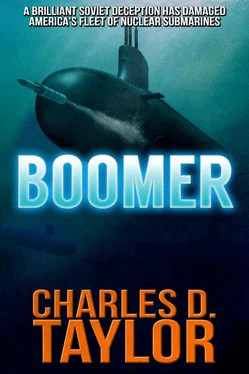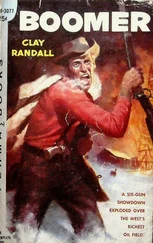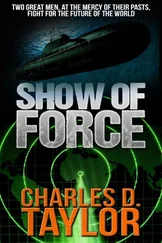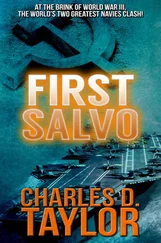“I want to share a message just received,” Newell continued. “It says: ‘Imperative Pasadena locate and destroy enemy SSBN in assigned sector. Mission critical to survival of land targets and strategic negotiations.’ While that is open to interpretation, I believe that there is a definite probability that our families may still be safe. I was informed before our departure that Soviet targeting included many of our cities, so I can only assume our efforts may be vital to their survival. And if there are actually negotiations under way, that could mean that our success on this mission could strengthen U.S. terms,” An audible sigh escaped over the speaker in each compartment, “I can only repeat that I believe Pasadena is in the right place at the right time. We have been chosen to defend our nation in a strange and unanticipated way … and I just wanted one more opportunity to express my deep pleasure in serving with each one of you. I’m not repeating a speech we’ve all heard in the movies. That comes from the bottom of my heart. The next few hours in our lives will mean so much to those we love.”
That was what they wanted to hear — what he wanted them to hear.
When Newell replaced the microphone, Dick Makin saw droplets of sweat coursing down his cheeks. From the manner in which the captain had spoken, they could just as well have been tears. His final words had been spoken with his eyes tightly shut, as if he were in prayer. The executive officer of a ship was closer to the captain than any other man, and Makin understood Newell better than anyone aboard Pasadena. He had seen more emotion from the man in the past six hours than since they’d first met. Newell was as dedicated as any commanding officer in the fleet. Yet his personality also appeared to be changing radically as the pressure increased with this new target. Wayne Newell had never been an emotional individual before. He had been cold, calculating, efficient. Now there was a new, almost human, element. The change was rewarding in a way, yet also … frightening.
“Well, what do you think, Dick? Any doubt in your mind after that that we’re all in this together?”
“None at all, Captain.” He watched as the handkerchief came out of Newell’s back pocket. It seemed to wipe away his emotions at the same time the perspiration that was now staining his collar disappeared. It was an eerie sensation to watch the cocky smile of confidence blink on like a light bulb. “I hadn’t had a chance to see the messages yet. I’m surprised we’re getting detail like that in this situation.”
“Me, too.” He gave Makin a friendly poke on the arm and added softly, “I must admit I found it necessary to add a little something extra — for the troops, you know.” Then in a louder voice, “But I guess that shows SUBPAC’s confidence in us. I’m only sorry we couldn’t respond so they’d know for sure we already took out two of those bastards. This submarine deserves to be the pride of the fleet.”
An unexpected warning chill surprised Makin. He was watching Newell’s eyes move about the control room. The man wanted to make sure he was being heard. His words were for everybody on Pasadena, not the executive officer he’d been speaking with. The captain seemed to be addressing his destiny. And that chill was more pronounced….
“Captain!” The voice that interrupted them was from the sonar officer. Only his head was visible from the entrance to sonar.
“A steady contact, Steve?” Newell was beaming as he covered the short distance to the other compartment.
“Yes, sir.” He held up a cautioning hand. “But Dixon thinks he may have something different this time. It’s nothing clear, but the computer seems to indicate it’s not the same thing.”
Newell saw that Steve Thompson was bent over the shoulder of one of his men. He tapped him on the shoulder. “Still out there on the port bow, Dixon?”
Dixon shook his head without looking up.
“Maybe we ought to be ready for a snapshot, Dick,” Newell called excitedly toward the control room. “Inform the torpedo room.” Then in an even louder voice than he’d expected himself, “Is it solid, Dixon, close enough to track?”
Again the sonarman shook his head.
“Well, for Christ sake, what the hell is it?”
Dixon glanced quickly over his shoulder at the sonar officer. There was a pleading look in his eyes.
Steve Thompson edged over beside the captain and whispered diplomatically, “Please, Captain, they’re trying as hard as they can to classify it. And it’s still too far away to be sure of anything. I think it’s manmade.” He remained conscious of the recent confrontation with Dick Makin. “When I called you from the control room, I just wanted you to know we had something.”
Newell’s brow furled in frustration. “But you said it was different.”
“That’s right. Captain. It doesn’t appear to be the same one we picked up earlier. I didn’t mean to—”
“Mr. Thompson, Dixon’s got the original one again,” another sonarman interrupted. “Still faint….”
“Get a comparison.”
Even Newell remained quiet while they waited.
It was less than a minute before Dixon said softly, “Two definite … manmade. One off the port bow. One to starboard. No definite bearing yet, no target motion. I’m pretty sure they’re both far enough off so there’s no immediate danger, Captain. The one to port is still very faint, so he’s either awfully damn quiet or a good distance away.”
“Target motion,” Newell barked. “I need target motion.”
“Captain,” Dixon began in the same soft voice, “I can’t—” Not even maneuvering would help at this stage.
“Steve, you know what I want. There’s no such thing as” — but he’d already turned away in anger, and it was Dick Makin who heard his final word—”can’t.” The captain’s arms were folded across his chest. His teeth were clenched with determination. There was no room for disagreement when he knew there were sonar contacts ahead … and they had to be moving … somewhere.
“Captain,” the executive officer said, “I think we could add another couple of knots’ speed without giving ourselves’ away to anyone. The Soviet sonar isn’t as good as ours.”
“Dick, this is wartime,” Newell snapped, “not an exercise. I know goddamn—” He had been about to say that he was more worried about American sonars anyway. But Newell cut himself off without finishing and nodded curtly to Makin before striding purposefully into the control room. Makin could hear him say to the OOD, “Add two — no, make it three — more knots, same course until we have a better picture from sonar.” Then he was back in the tiny room. “Good thinking. We have to take chances.”
About ninety minutes after Pasadena increased her speed, Dixon said, “Captain, the best I can say at this time is that the bearings of those two contacts seem to have shifted enough so that perhaps they’re headed toward each other.”
“What’s your basis?”
“Well, sir, the bearings are still pretty vague for me to be saying something like that but” — he was holding his hands apart in front of Newell—”if we’re in the middle here, I’d say maybe — just maybe — they were narrowing like this.” He moved his hands slightly closer, no more than half an inch toward the middle. “That’s the best I can say.”
“Which one’s the boomer?”
“Oh, I’d be taking one hell of a gamble, sir, if I said which one at this—”
Newell’s voice intruded sharply. “Which one?”
Dixon’s head inclined and his eyes fell to the deck for a second. His hands were still raised toward the captain. He closed the fingers of his left hand, “This one, Captain … the one to port.”
Читать дальше












